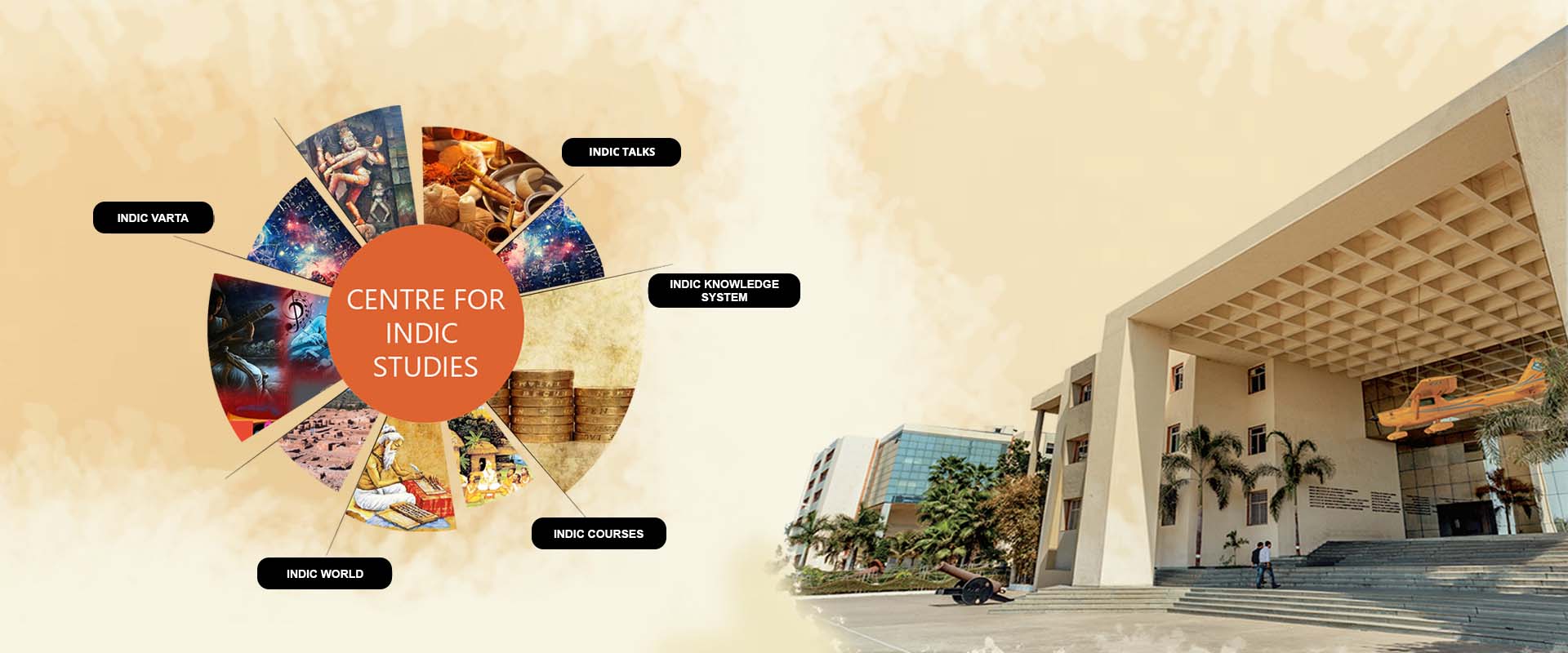
Centre for Indic Studies has been established to promote studies and research on various aspects of Indian Civilization. It will focus on multi-faceted and interconnected aspects of Indian Civilization, shedding light on the sources of its unmatched unity and diversity. This Centre will aim to explore wide range of areas which manifest core philosophies and values of Indian Civilization.
Indus University is one of the leading universities of Gujarat. It aims to bring social changes with education, skill development, research and innovation. Indus University offers undergraduate and postgraduate degrees and research programs. Indus University has state-of-the-art infrastructure and resources to support learning, teaching, research and innovation.
Indian Civilization is one of the oldest civilizations in the world. It has survived for more than ten thousand years without breaking its civilization’s continuity, something which is quite unparalleled in world history. It is no less than a wonder that this civilization existed before the dawn of any other civilization and is still thriving in 21st century, despite facing severe desecrations and destructions across the centuries. It is an accomplishment unlike any other. It is a triumph of survival. This continuity and survival has garnered much appreciation as well as astonishment from scholars around the globe.
Unfortunately and surprisingly, despite this unbroken continuity, there is lack of awareness about deeper aspects of Indian Civilization. Writing in the 1950s, the American historian Will Durant begins his chapter on India like this: “Nothing should more deeply shame the modern student than the recency and inadequacy of his acquaintance with India.” It is a sad state of affairs that the situation has not changed much in the last hundred years. The complete domination of the Leftist Intellectuals in academia has been responsible for various distortions, myths and outright lies about Indic Civilization. As a result there is an absence of a grand narrative of India, a narrative that could present the collective identity of Indians. Besides Leftists, the field of Indic Studies has been mostly dominated by British and then by American Orientalists who lack insider’s perspective, resulting in grave distortions in this field.
To put Indian history in the right perspective – there is a need to restore dharmic narrative of Indian Civilization, in academia. A dharmic narrative would search for the much famed Indian Wisdom. A dharmic narrative would be the one which explores the core values which have helped India survive social, political and religious upheavals over the millennia. It seems that these values, containing deeper vision and wisdom, have great relevance in modern world. Because at the core of these values lies a constant sense of the unity and interdependence of all life. They will not only help India but also the world to survive great forces of destruction.
The scholar-activist Rajiv Malhotra urges that, “Such narratives serve an important function in establishing collective identities, the ideals worth aspiring, and a broad trajectory—both for interpreting the past and guiding the future.” He proposes that this grand narrative should have an open architecture and must be “adaptive and fluid, accommodating to fresh ideas and new members”.
Centre for Indic Studies has been established to achieve this goal of restoring and promoting dharmic narrative of Indian Civilization. This Centre would aim to explore wide range of areas which manifest core philosophies and values of Indian Civilization. It will help in what Sanskrit-Scholar Dr. Kapil Kapoor calls, “Relocating the Indian Mind in the Indian thought.”
